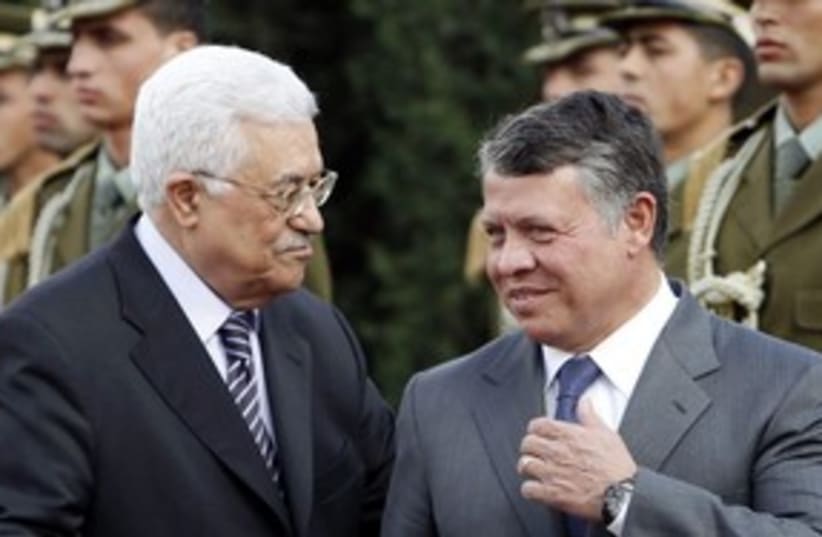The great hopes that we had for President Obama have been unrequited and we are left with the reality that the international community will not save us from ourselves. We cannot afford to wait for the next round of violence that could change the reality (for the worse) on the ground. We must have some other form of intervention that could be useful.
We must have a different mediator and a different mediated process.
There are very few leaders around the world who hold the respect and the trust of both parties.
There are few people with the integrity necessary to actually mediate this process. I think that Your Majesty is one such person. I am aware of the problems and difficulties entailed. I would like to have an audience with you to present to you my ideas and proposals for your direct intervention in the mediation process between Israel and Palestine.
Your own vested interests in preserving and developing Jordan in the region depend, to a great extent, on the ability of Israel and Palestine to reach peace.
I would like to propose the following – a meeting with me for me to present the general strategy. Phase two would be a small, closedroom gathering of several Israeli, Palestinian and Jordanian think-tank experts (I would be happy to propose several experts) to fine-tune the Jordanian initiative. And then, in the final phase, to begin the implement the initiative.
It is essential that this all remain secret and discrete until the whole process is developed and fine-tuned so that spoilers won’t bring it down before it is even launched. I think that there are not too many more avenues that we can pursue to advance Israeli-Palestinian peace. We need Your Majesty’s direct engagement now.THAT LETTER led directly to a meeting at the Royal Palace with the Minister of the Court Nasser al-Louzi, a young, sharp, senior adviser to the king. We discussed the initiative in depth with all of its risks and opportunities. I was told that before the initiative could be recommended to His Majesty, there would have to be a clear signal from Prime Minister Netanyahu that he was interested.I came back to Israel and immediately spoke with Uzi Arad, then the national security adviser. Arad, never in the mood to talk seriously about peace initiatives with the Palestinians, was then trying to extinguish the flames resulting from the faux pas of Israel’s announcement of new settlement building in east Jerusalem during the visit of US Vice President Joe Biden.This did not endear him to my proposal.Why would Israel ever trust the Jordanians to mediate peace between us and the Palestinians? he asked. They will always be on the Palestinians’ side and always against us.“Because there are very few others in the world who could actually mediate between us and the Palestinians,” was my reply. “At the end of the day both parties will require the Americans to come into the process for closing agreements and providing guarantees, international funding and all kinds of assistance that only the Americans can provide,” I told him.“But the Jordanians have a very intimate long-term relationship with Israel. They clearly understand Israel’s security needs and requirements and their active engagement with a leading role for King Abdullah would be very positive for both Israel and the Palestinians. It would also strengthen the peace between Israel and Jordan.So, without any fanfare or calls for celebration, the meeting arranged by King Abdullah between Netanyahu’s personal emissary Yitzhak Molcho and chief Palestinian negotiator Saeb Erekat is a positive step. Key to any chance of success will be keeping the meeting very low-profile and continuing a process of intensive meetings not in the eyes of the media.The writer is a radio host on All for Peace Radio and a former chairman of IPCRI, the Israel Palestine Center for Research and Information.
